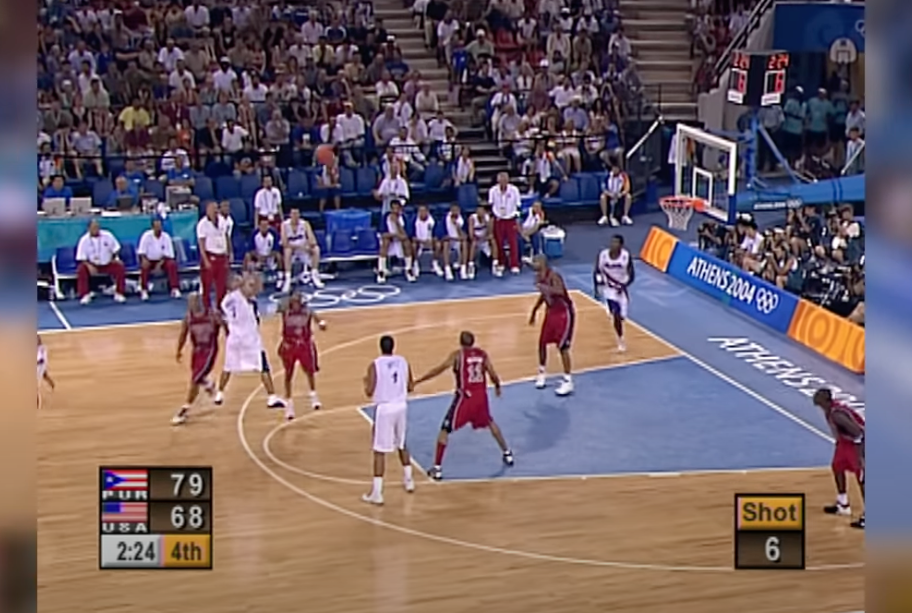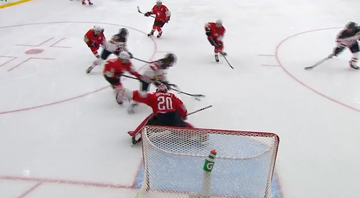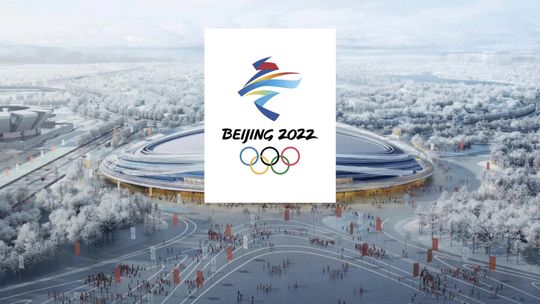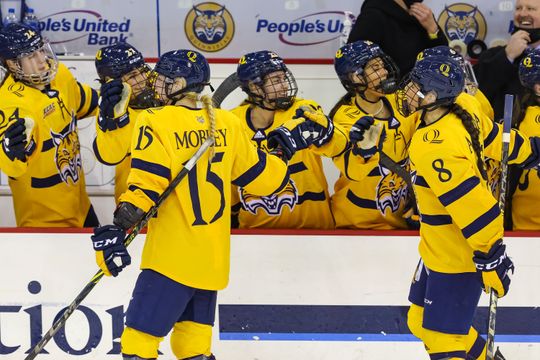If your favorite thing in life is watching the Olympics, boy, are you in your element. The 2021 Olympics (you know, the ones that should've happened in 2020, before the world went [even more] to hell) wrapped up a couple weeks ago as I write this, exactly 180 days – six months! – before the 2022 Winter Olympics are slated to begin.
While I'm not reflexively anti-sports, suffice it to say, I won't be watching.
The last time I actively watched the Olympics was 2004. I don't think it's a coincidence that they were the last Olympics that happened while I lived primarily in Puerto Rico, before I left for college in the States and ended up staying.
Nor do I think it's unrelated that they were the first ones I could remember where Puerto Ricans really got to exult in a triumph over the U.S. – a crushing 19-point victory in basketball, very much the American bailiwick, against a team that had plenty of NBA talent, playing for a country that had never lost in the Olympics. Even the pro-statehood types joined in, unaware for a week that, if they got their way, there wouldn't even have been a Puerto Rican basketball team.
The high-minded part of me would say that I stopped watching because I learned about what happens when cities are selected for the honor of hosting major sports events, even beyond the Olympics: they rush to build stadia and facilities that end up sitting fallow for decades afterwards, and as Qatar's preparations for the 2022 World Cup have demonstrated, sometimes through massive losses of human life. If anyone happens to live in the way of that construction, they're shunted away, sometimes by truncheon and bulldozer, as happened to the residents of Rio de Janeiro's Vila Autódromo.
The lazy part of me would say that I simply don't want much television these days, although I'm reliably informed that even people who very much wanted to watch the Games this year had to struggle with a number of different streaming services.
If I'm honest, however, the primary reason I've stopped watching the Olympics is that I have to experience them in the United States, which means experiencing them with American sports fans, and American sports fans are, pardon my language, fucking insufferable.
I forget exactly when, or from whom, I once heard that Americans were the Boston sports fans of the world, but it is never truer or uglier than during the Olympics. Even people who may have thoughtful critiques of imperialism and American exceptionalism every other day of their lives suddenly start making excuses for the US not hauling home every gold medal, in events that most of them did not know at all before the Games began and won't care about once they're over.
To be clear, I'm not indulging some weird reverse exceptionalism here: I am aware that being obsessive about sports isn't exclusive to Americans. What does worry me is that it increasingly seems that sports is are the only socially acceptable obsession in this country – and though there is change here, when the Olympics aren't on, I'm really talking about the Big Four men's sports leagues, and far too often, I'm actually mostly talking about the National Football League.
It's not enough that, for all the flak schools (mostly correctly) get about not emphasizing play enough, every level of the American educational system is organized around athletics, to the point where it's a primary revenue center in a country that chronically underfunds its schools and universities. It's not enough that sports are the one topic you can wax poetic about, word-loose and irony-free, for hundreds of words at a time, and not get immediately cast as an irredeemable nerd. It's not even enough that men's sports, as I can say from personal experience, are a cultural competence demanded if you really want to be part of the melting pot.
Nor am I simply incapable of appreciating athletic achievement, which is an all-too-common response when you write something that even mildly pushes back on that obsession. Quite the opposite: I'd say the problem is that this country doesn't appreciate those achievements enough, at least not as the feats of ability that they are. When Jasmine Camacho-Quinn breaks an Olympic record, tying for the fourth-fastest time in history at the 100 meter hurdles, the degree to which she was "really" Puerto Rican becomes an instant object of debate both on the island and in the States, despite the fact that her family watched her make history from a room covered in Puerto Rican flags, or the fact that she was a three-time NCAA champion who could've competed for the United States and chose the Puerto Rican team.
Mind you, it was especially ironic that some of the criticism came from Gigi Fernández, who won her Olympic gold in women's doubles by competing for the United States instead of Puerto Rico, because her birth country couldn't provide her with a doubles partner she deemed suitable. Fernández has since deleted the tweets, claiming she was hacked, but this isn't the first time she's taken to Twitter to criticize athletes from the Puerto Rican diaspora for being insufficiently boricua to represent the country.
Meanwhile, the only representative Puerto Rico was able to send to the last Winter Olympics was Charles Flaherty – a young man born in Cincinnati of no Puerto Rican ancestry who, at the time, had lived for about seven years in Dorado (that town Logan Paul claimed to hail from during the Mayweather fight) – and his story, as far as American sports media is concerned, is one of feel-good plucky heroism, with no need to ask difficult questions about why Puerto Rico was solely represented, at its first Winter Games since 1998, by an Anglo teenager.
(For the record, I tried to see if Gigi Fernández had any words on the subject... but as it turns out, she deleted more than just some tweets.)
In both of these cases, the net effect is that the United States ends up taking a share in Puerto Rican athletic achievement – which, I may not need to tell you, is a rather uncomfortable reminder of the existing relationship between the two countries. Puerto Rico is the world's oldest colony; since 1493, the island has had an autonomous local government only once, seated exactly eight days before the American invasion began in earnest. The last 123 years of Puerto Rican history are defined by the exploitation of Puerto Rico's people and natural resources for the comfort of Americans and the wealth of American corporations, with U.S. citizenship given almost as the price for our silence, and without the right to full participation in the government of the United States, which has now abandoned the pretense of allowing Puerto Rico control over its local affairs.
The central irony here is that the American athletes themselves do not treat the competition like an exercise in empire, probably because they actually know how hard their jobs are, and in many cases, how poorly remunerated they will all be for the work they're putting in. When Gelya Melnikova led the ROC women's gymnastics team to gold, her American counterparts were there to hug and high-five her. When asked if he was "surprised" to lose to France in basketball, coach Gregg Popovich pointed out with some annoyance that formulating the question like that implied that the U.S. team was expected to steamroll every other country in the world by 30 points.
Of course, that is exactly what the question is implying, and that's why that last little moment is particularly revealing to me. The whole point of the Olympics is to appreciate a kind of achievement that should be possible regardless of the resources and training available to you – theoretically, anyway; reality has stubbornly refused to bear this out. Despite that, somehow, the assumption remains that if Americans choose to compete on a given field, the rest of the world will simply fall before their might, as if they have no right to improve at sports the empire has declared their possessions.
It's a very familiar assumption, and when you've been reminded your whole life that you and your family live on one of those possessions – that everything you had, material or otherwise, was by the so-called grace of your overlords – it is difficult not to find it disturbing, especially when you see even people who are politically sympathetic take the Olympics as a chance to let their patriotic hair down and be Americans for a change, soothed by the supposed neutrality of sports, while your people's victories, infrequent though they may be, become acts of athletic defiance against the empire that subjected them to a century and a quarter of deprivation.
Everywhere else sports and American patriotism intersect – two-anthem baseball games; the pushback on athletes who take a stand against police brutality; the direct involvement of the military in sporting events – a lot of us see through it, but the marketing teams for the Olympics have truly gone above and beyond to convince us that they are somehow above such petty concerns.
The Olympics are inextricable from the massive corruption and brutality that enables them to happen in the first place, and this insistent charade of being a simple competition between amateur athletes allows countries like the United States to pretend that they don't use their medals as yet more proof of their superpower status. It's time to look for a path away from this obsolete model, one that doesn't give a country as convinced of its own inherent greatness as the United States more chances to impose its hegemony on the rest of the world.
I doubt that I'll ever watch the Olympics again. What I can say – and proof that I know exactly how unlikely that is – is that if I do, it'll be because the parade doesn't include a United States flag.
(Photo: Olympic Channel)





